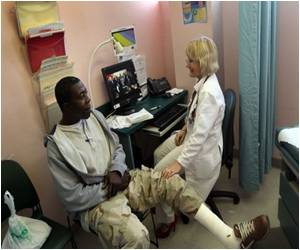
“There was this view that Medicaid coverage would not do much for the low-income uninsured, either because they had access to charity care or because Medicaid is not good insurance,” said Amy Finkelstein of the Massachusetts Institute of Technology. “This rejects that notion entirely.” Amy received the John Bates Clark Medal – a laurel for young economists.
At present 50 million citizens receive health care under Medicaid, though many states don’t provide Medicaid to adults without disabilities or dependent children even when they are very poor.
Health economists foresee new enrollees to the Medicaid program will increase the country’s health spending costs by hundreds of billions of dollars. In 2014, at least 18 states and the District of Columbia will provide coverage to all adults with incomes below 133 percent of the federal poverty line. That currently would mean coverage for all individuals with incomes below about $15,000 and for households of four people receiving less than about $31,000.
The distinctive Oregon study came about when the state found itself with enough money to provide additional Medicaid coverage to about 10,000 low-income adults. Many times that number qualified.
Researchers found that Medicaid coverage did not actually affect the prevalence or diagnosis of hypertension or high cholesterol, or the use of drugs used to treat those conditions.
Advertisement
“The authors are almost tilting the spin on the story to be a little more pessimistic than I would have been,” said John Holahan of the Urban Institute, responding to the new findings.
Advertisement
The second set of results from the Oregon study show differently. There is no increase in use of health services, nor is there any decline later on. Rather, use of the health system increased, and that increase persisted between the first year and the second year of the study.
“They go to the doctor more often, they visit the hospital more often, they use more prescription drugs, they are more likely to use preventive care,” said Katherine Baicker, a Harvard professor, co-author of the study and former economic adviser to President George W. Bush. “There is no evidence of a spike of utilization from pent-up demand.”
References:
Hannah Punitha (IRDA Licence Number: 2710062)
Rick Bowmer, May 2013
Source-Medindia












